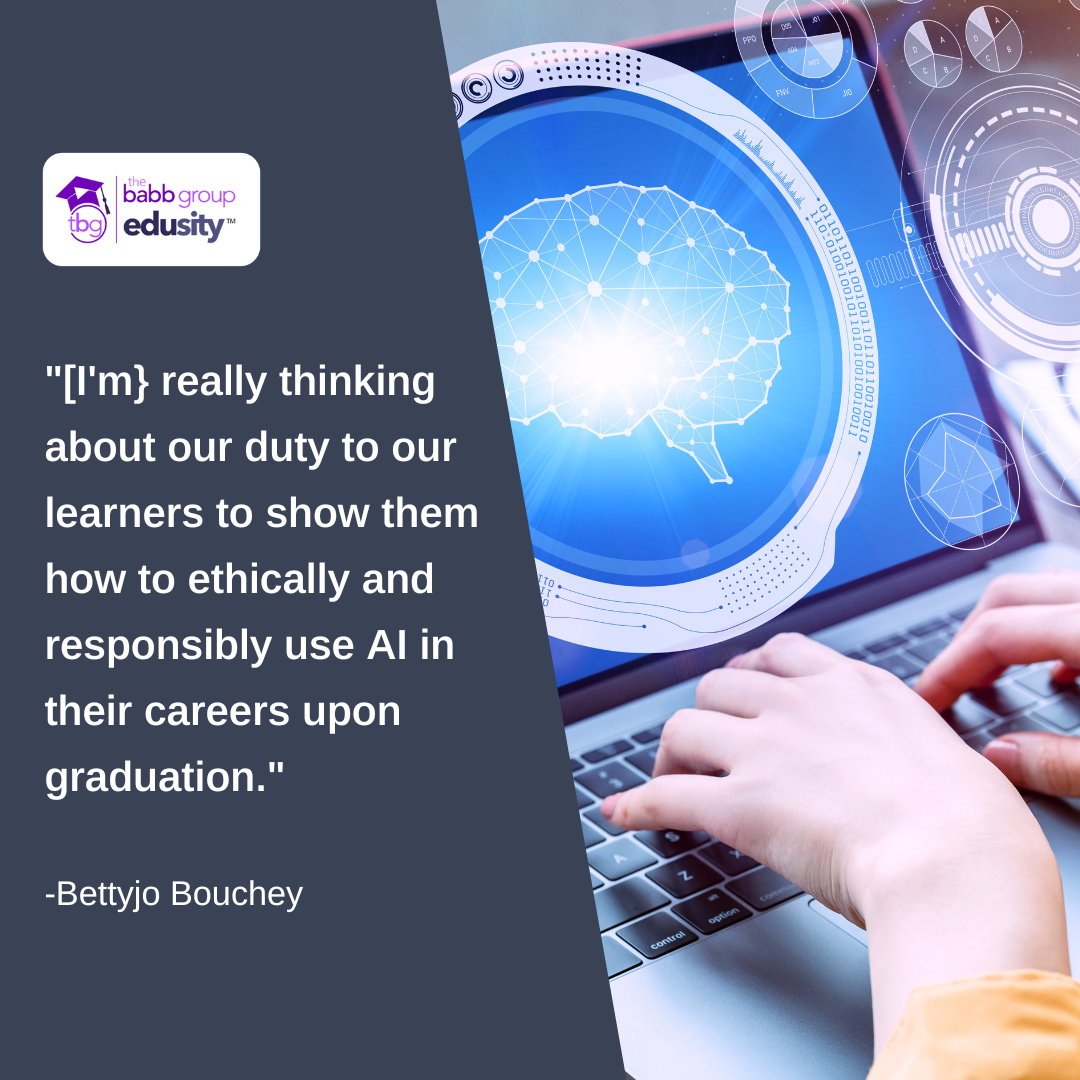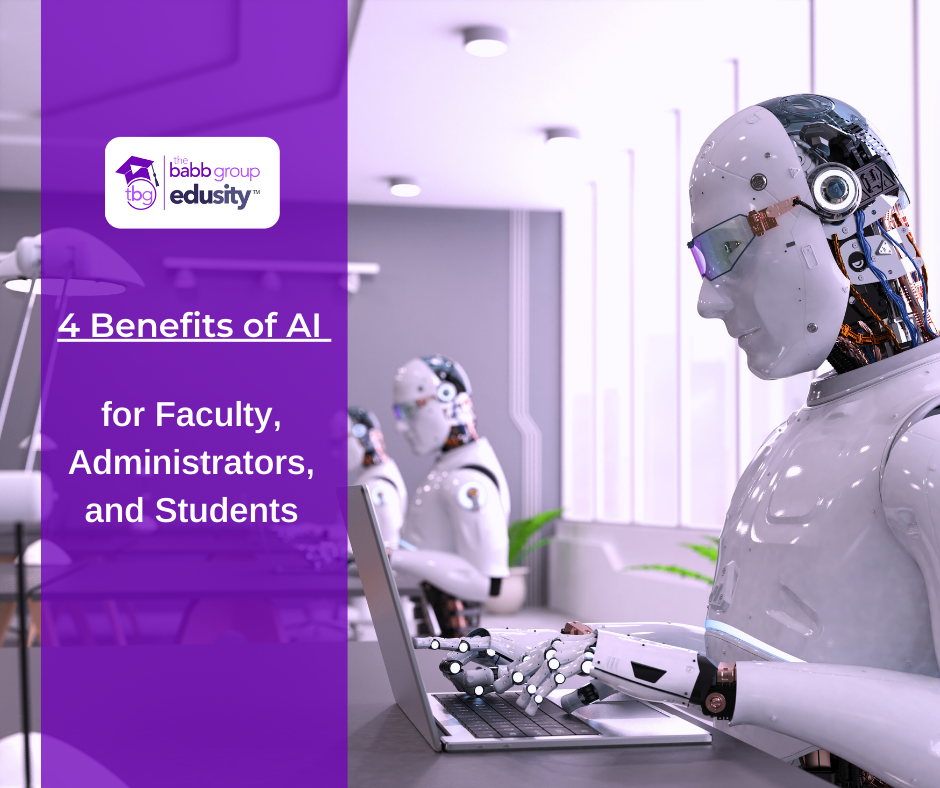AI is transforming how we teach, learn, create, and manage. The Babb Group talked to Bettyjo Bouchey, Vice Provost of Digital Strategy and Operations, National Lewis University, and Ellis Reeves, Director of Online Learning Support, University of South Carolina Aiken, about the benefits of AI in a recent podcast. Here are 4 takeaways.
Listen to the full podcast with Bouchey and Reeves.
Student-Centered Focus
Bouchey and Reeves talked about how we can use AI to stay focused on students but from different and valuable perspectives.

Reeves agrees, adding that using AI can create more time for students. He said, “We could start using this tool to make sure we’re not having to use as much of our time on some of the smaller tasks. We are putting the best foot forward and really, really focusing on our students and that’s what this will free up a lot of faculty and staff to do.”
One way to implement AI for a more student-centered approach is to use learning management system tools for personalized learning. AI-driven platforms can analyze students’ performance, learning preferences, and strengths and weaknesses. This information enables educators to create tailored learning experiences, such as customized study plans and recommended resources. This individualized approach can significantly boost student engagement and understanding.
Incorporate AI into Assignments
AI-powered tools can provide instant feedback on assignments, highlighting areas where students excel and where improvement is needed. This real-time feedback helps students refine their skills and boost their confidence. AI-Powered Research: AI can assist students in gathering and analyzing research materials, improving the quality of their projects and papers. This encourages critical thinking and research skills development.
You might also like 3 Cutting Edge Instructional Design Trends to Watch
Supporting Faculty Members
AI-powered tools can assist in generating course content, recommending relevant resources, and suggesting innovative teaching methods. This frees up faculty members to concentrate on refining their teaching techniques and connecting with students. Reeves adds that using AI for course development leads to more consistent student learning experiences.
AI can analyze large volumes of student data to identify trends and areas where intervention is needed. Faculty members can then proactively address issues, offer additional support, or adapt their teaching strategies based on these insights.
Empowering Administrators
AI-driven analytics tools help administrators make data-informed decisions. They can gain insights into student performance, enrollment trends, and resource allocation. This information aids in improving institutional efficiency and student success rates.
AI can predict which students risk dropping out based on their engagement, attendance, and performance data. Bouchey said, “Artificial intelligence could be looking at a thousand data points, tens of thousands of data points about one student helping us to identify what we might perceive as at-risk or perhaps a set of behaviors that we want to create and proactive services to mitigate.” Early intervention strategies can then be implemented to provide these students with the necessary support and guidance.
Integrating AI in higher education represents a transformative shift in delivering and managing education. For students, it means personalized learning experiences and round-the-clock support. Faculty members benefit from streamlined grading and enhanced teaching resources. At the same time, administrators can make data-informed decisions to improve institutional efficiency and student success rates. Embracing AI is not just a technological advancement; it’s an investment in the future of education.
Angela Britcher
Latest posts by Angela Britcher (see all)
- Enhancing First-Year Experiences in Higher Education - August 1, 2024
- Enhancing Education with Virtual Reality: A Hands-On Approach - June 27, 2024
- Higher Education Trends: Insights from Our COO, Sheila Fry - June 13, 2024
